
下载亿题库APP
联系电话:400-660-1360

下载亿题库APP
联系电话:400-660-1360

请谨慎保管和记忆你的密码,以免泄露和丢失

请谨慎保管和记忆你的密码,以免泄露和丢失
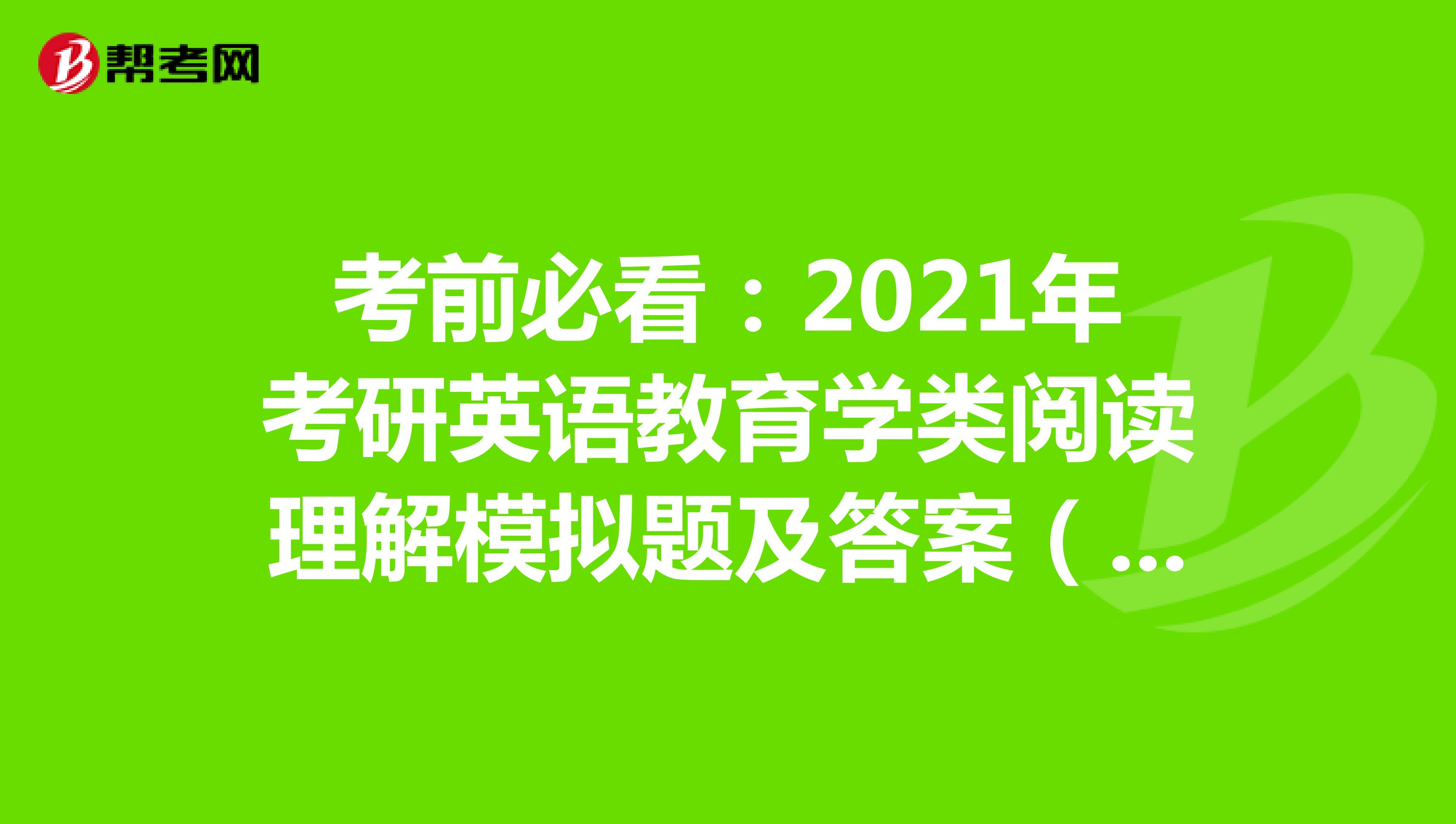
2021年考研初试备考还有最后的近三个月时间,相信大家也都在紧张的复习当中。在复习时,多做练习题可以让我们更加了解考试内容。下面,帮考网为大家带来考研初试的一些模拟试题,正在备考的小伙伴赶紧练起来吧。
When I applied under Early Decision to the University of Pennsylvania four years ago, I was motivated by two powerful emotions: ambition and fear. The ambition was to fulfill my lifelong expectation of attending an Ivy League school; the fear was that without the advantage offered by Early Decision, I wouldn\'t make the cut. A Penn admissions officer told me that the previous year they had accepted 45 percent of Early Decision applicants and just 29 percent of total applicants. The implication was clear: applying under Early Decision dramatically improves your chances of acceptance. At Brown University, my other favorite, applying early did not confer any advantage. While Brown was my No. 1 choice, Penn was a close second, and I desperately wanted to make sure I got into one of the two.
I applied just before the Nov. 1 deadline, and six weeks later I got my acceptance package. I was thrilled and relieved. While my friends spent winter vacation finishing as many as 18 applications each, I relaxed. On a school trip to France over spring break, I drank wine while everyone else struggled with international calling cards to phone home and find out where they\'d been accepted. People cried about getting rejected, or began the difficult and agonizing process of choosing between two or more schools. Strangely, none of this made me feel better about having applied early. It made me feel worse. When a lot of people from my class got into Brown, I wondered if I, too, could have.
Penn sent a discombobulating array of material to incoming freshmen over the summer. As the pile of mail mounted, so did my concerns that I had made the wrong choice. I had been to Penn only one day, in October of my senior year. I realize now I did not know nearly enough about myself or the school. Picking classes was far more arcane than I had expected (or than it would have been at a smaller school). And when I got to the campus, I found that fraternities and sororities were a more noticeable and obnoxious presence than the 30 percent student membership had suggested to me.
It wasn\'t long before I knew Penn was not right for me and I looked into transferring. For me, it was about more than just changing schools. I wanted to have the traditional application experience I\'d missed out on during my first go-round. The only school on my list that allowed transfers during the second semester of freshman year was Wesleyan, so I waited out the whole year, then applied to Yale, Brown and Wesleyan. I got into Wesleyan. The irony that I could have gotten in sooner, without getting rejected by the other schools, was not lost on me. But I know I made the right decision.
To high-school seniors who want to avoid making the same mistake I did, my advice is simple: don\'t apply under Early Decision unless you are absolutely sure that the school is your first choice. And, just as important, don\'t let your parents or college-guidance counselor persuade you to apply under Early Decision. They may have their own agenda, or at least their own perception of who you are and what you want. As I discovered, no one can really know what you want better than yourself, and even you may need time to figure out what that is.
注(1):本文选自Newsweek, 11/18/2002, p62
注(2):本文习题命题模仿对象2002年Text 3.
1. The main reasons for the author to apply under Early Decision are _______.
[A]pride and ambition
[B]dream and fear
[C]easiness and effort-saving
[D]trouble-saving and release
2. It can be inferred from the text that the main advantage of Early Decision is that ______.
[A]you can graduate from the high school earlier
[B]you don’t worry about the results
[C]you needn’t take the entrance examination
[D]you’re more likely to be accepted
3. The description of the author’s feelings in Paragraph 2 shows that _______.
[A]he is satisfied with his choice
[B]there are many advantages of being accepted earlier
[C]less effort is needed under Early Decision
[D]he is happy with and doubts about his decision
4. We can draw a conclusion from the text that ________.
[A]a full consideration is needed before applying
[B]students should avoid the short cut
[C]a quick decision will do you no good
[D]the author shouldn’t apply under Early Decision
5. From the text we can see that the writer seems _________.
[A]regretful
[B]optimistic
[C]gloomy
[D]sensitive
答案:BDDAA
以上就是帮考网为大家带来的全部内容,希望能给大家一些帮助。帮考网提醒:以上内容仅为参考,在做试题练习时,小伙伴们还是要以考研大纲为准,有针对性的去做题哦。最后,帮考网预祝参加2021年考研初试的小伙伴都能取得优异的成绩。
 22
22以前年度的普通研究生入学考试成绩还能查询吗?:以前年度的普通研究生入学考试成绩还能查询吗?以前的考研成绩能查,成绩查询可以登录中国研究生招生信息网,根据自己报考研究生考试的报名号登陆,即可查询以前的考研成绩。
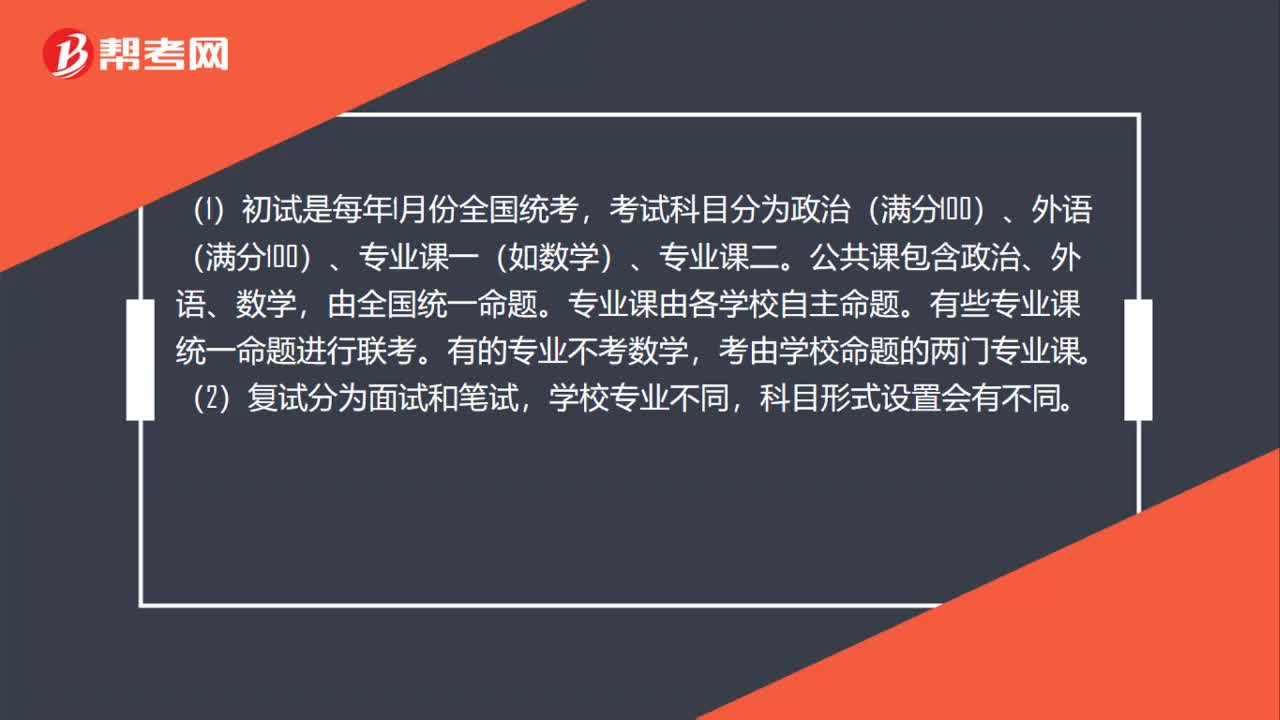 44
44研究生入学考试要考哪几门?:研究生入学考试要考哪几门?(1)初试是每年1月份全国统考,考试科目分为政治(满分100)、外语(满分100)、专业课一(如数学)、专业课二。公共课包含政治、外语、数学,由全国统一命题。专业课由各学校自主命题。有些专业课统一命题进行联考。有的专业不考数学,考由学校命题的两门专业课。(2)复试分为面试和笔试,学校专业不同,科目形式设置会有不同。
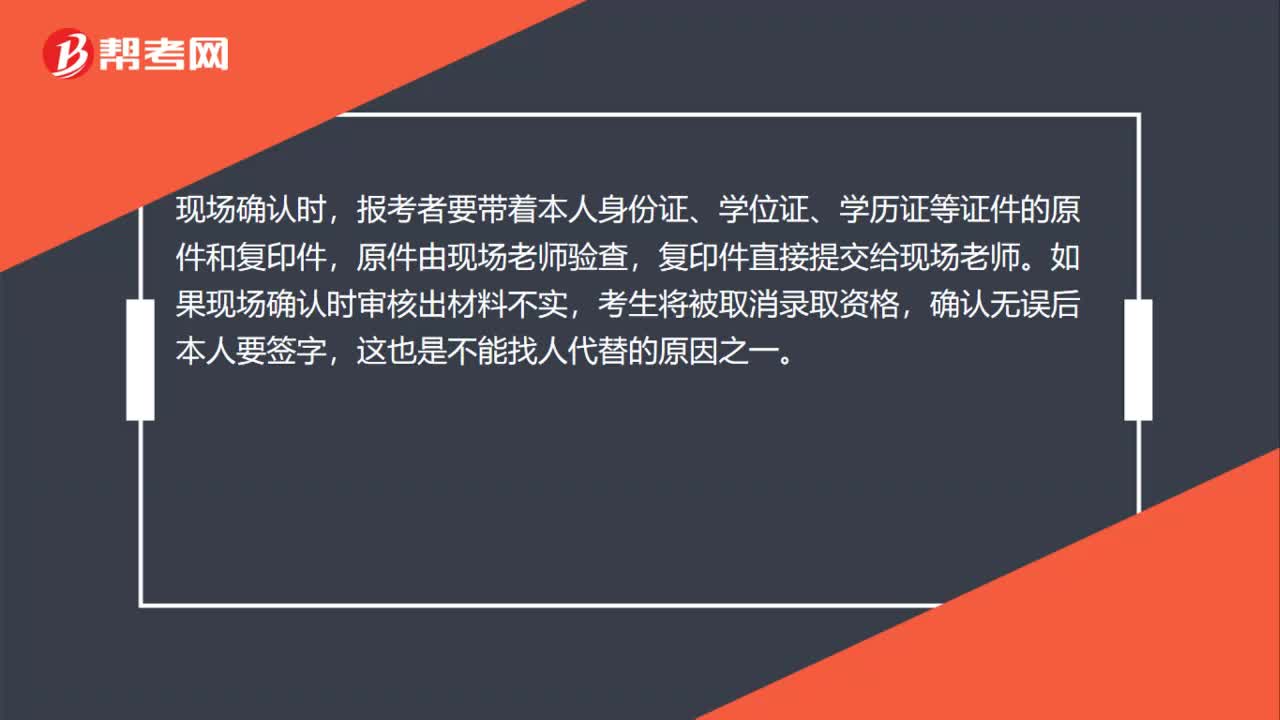 35
35普通研究生入学考试现场确认必须要本人到吗?:普通研究生入学考试现场确认必须要本人到吗?现场确认时,报考者要带着本人身份证、学位证、学历证等证件的原件和复印件,原件由现场老师验查,复印件直接提交给现场老师。如果现场确认时审核出材料不实,考生将被取消录取资格,确认无误后本人要签字,这也是不能找人代替的原因之一。
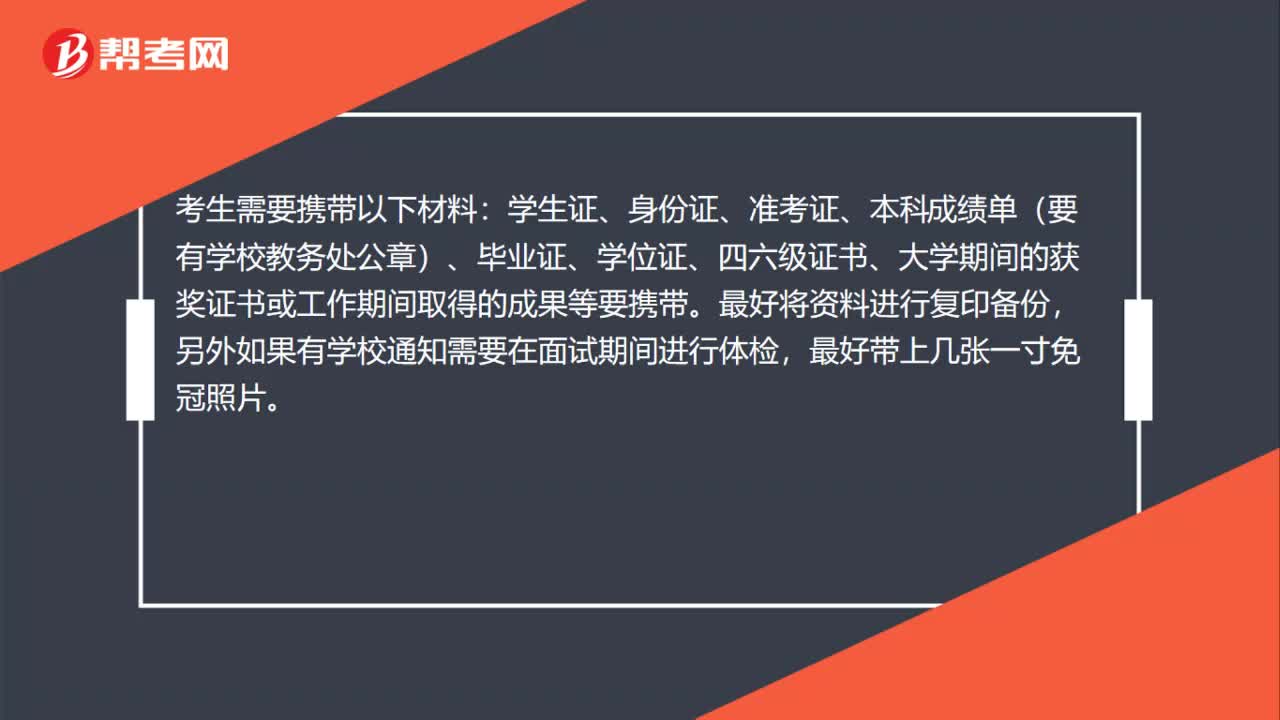 00:41
00:412020-06-06
 00:44
00:442020-06-06
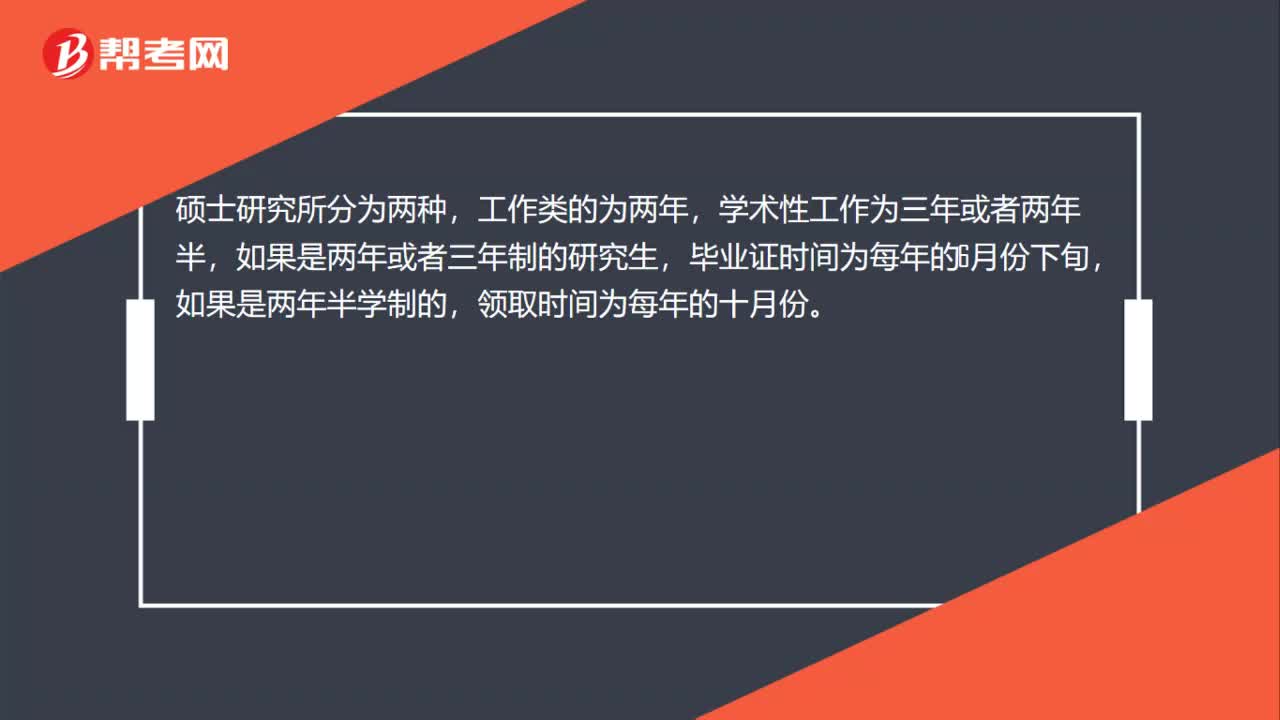 00:28
00:282020-06-06
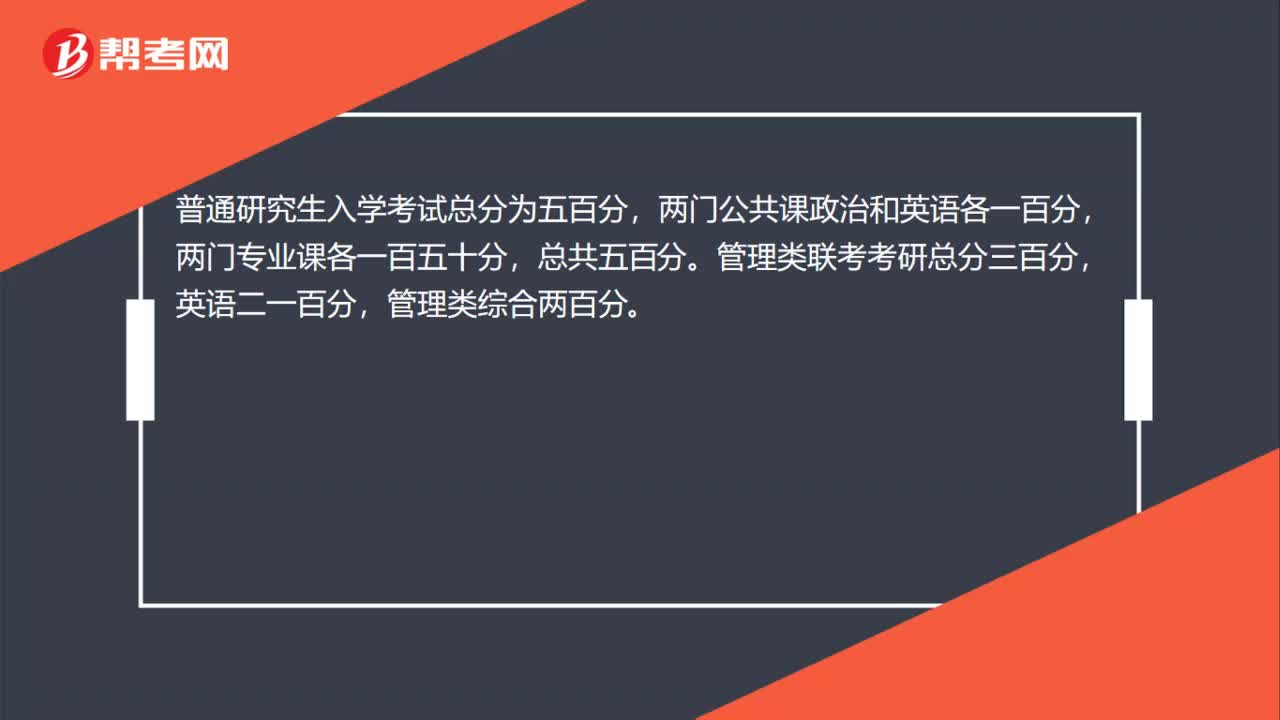 00:27
00:272020-06-06
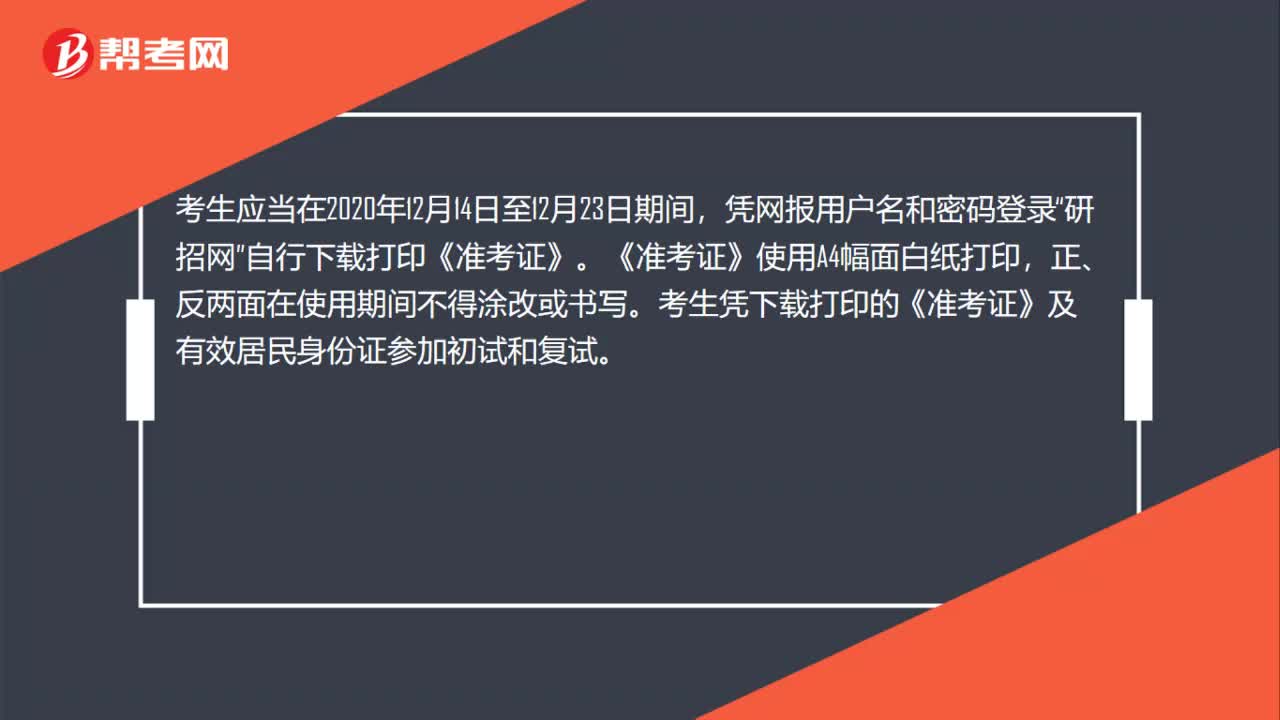 00:33
00:332020-06-06

微信扫码关注公众号
获取更多考试热门资料